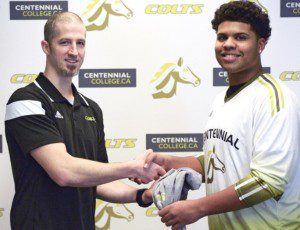Are You Ready for the Summer Recruiting Cycle?
Posted by SportsForce in College, Inspiring Stories, Lacrosse, Off Season, Planning, Recruiting, Tips & Advice, tags: College Coaches, college recruiting, college recruiting game plan, high schoool lacrosse, Lacrosse, Lacrosse recruiting, lacrosse showcases, student athletes, summer investment, summer recruiting, target list
It’s that time again…summer club season.
By this point in the year, most high school lacrosse players have sifted through the multiple club teams, showcases, prospect days, and tournaments to which they have been invited, and tough decisions are being made. Likewise, college coaches are finalizing their plans, allocating precious recruiting resources to various tournaments and events throughout the country.
In this installment of our College Game Plan Education series, we’ll provide a basic overview to get the most out of your summer investment.
So let’s stay at a high level and get started with a few questions:
Have you narrowed the list of schools that you’re interested in?
There are over 350 colleges with NCAA Men’s Lacrosse programs, but only a few schools that align with your academic, athletic, social, geographical, and financial goals. Taking the time up front to focus only on best-fit schools will save you and your family tremendous amounts of time, money, and frustration. We call this developing a “target list” of schools. Factors such as what academic programs are offered (and their rating), school size, location, social aspects, level and culture of the lacrosse program, and the coaching staff must be considered to make an informed final decision and should be part of developing your target list.
What coaches from your target list committed to attend your events?
The questions I most hear from families in late spring revolve around one topic: the BEST teams/camps/showcases to attend this summer to be seen by college coaches. The answer to “which is best?” comes down to how many of your targeted schools will be at an event and whether you can interest them enough to come see you play. For example, a showcase heavily attended by Ivy League schools would likely not be the best use of resources for a player with a 2.5 GPA. If you have the grades, the desire, and the talent to attend Harvard or Princeton, however, it would likely be a great event to attend.
Have you contacted any coaches to let them know where you’ll be playing?
Many players believe that if they’re on the right team or at the biggest showcase, they’ll simply get noticed. NCAA rules limit the amount and type of contact a coach can have with an underclassman (currently 2018 and below), so you can’t expect to have meaningful conversations with them when you see them or meet them in person at events. While accolades like all-star teams and all-tournament teams on your resume can certainly have an impact, a college coach usually arrives at an event with a list of names they’ll be evaluating and those players’ schedules, so it’s important to make personal contact and begin to establish relationships with coaches in the weeks leading up to your events.
Do you have an effective online presence?
Lacrosse is quickly growing into a nation-wide sport, with more and more new players picking up a stick each year. College coaches are flooded with emails and phone calls from high school players that desperately want to attend their school and be a contributor in their program. It’s wise to make it as easy as possible for a coach to evaluate your potential as a recruited player rather quickly. In today’s recruiting landscape, a highlight video, your academic information, and your measurable statistics (height, weight, speed, etc.) are a bare minimum. It is a good idea to also include references and their contact information, your upcoming schedule, a copy of your transcript, and even a personal statement or a list of college goals you’re looking to achieve. Your goal is to establish a relationship with these coaches, so the more you set yourself apart during the initial evaluation phase, the more likely you’ll be recruited by multiple coaches and programs.
Steps to Maximize Your Summer Game Plan
- Develop a target list of potentially best-fit schools and lacrosse programs
- Create/Update/Maintain online presence that markets YOU
- Establish contact with college coaches, interest them in your information
- Be yourself, ask questions, and learn all you can from the coaches you meet
- Have fun playing lacrosse
- Conduct follow-up with interested coaches after each event
Other tips for success:
- Stay hydrated and have a nutritional plan at summer events
- Play hard all the time, you never know who may be watching
- Play smart- it’s still a team game in the summer
- Always display sportsmanlike conduct
- How you look & act between games matters
The common thread in everything we do in the recruiting space is that it’s all about relationships. Choosing a college is an extremely personal and emotional decision for every family, and the investment is likely the largest any parent makes in their child’s future. As such, every player and parent feel the need to be personally comfortable with the school, the campus, and the lacrosse program before committing to attend. Likewise, college coaches earn their living based on how their team performs on and off the field, and the stakes are high, so they have to truly get to know the young men they invite to play for their program. Developing relationships with college coaches should be one of the main goals of your summer, and will require you to formulate a plan to make the best use of your summer lacrosse schedule and the opportunities you will have to be seen and evaluated by your best-fit programs.








